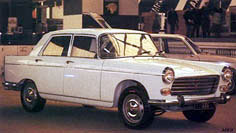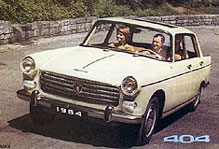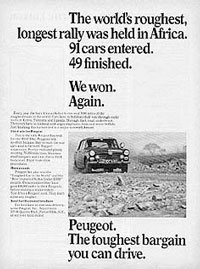
![]()
Search the Journey to Forever website – click HERE
|
Journey to Forever: Make a donation |
En español
Biocombustibles, biodiesel
Navigation
Contact usTo Keith Addison Handmade Projects |
The best car in the world
Karl in Britain sent this rather rude message to the Biofuels mailing list discussion group on 24 June 2001, at a time Americans were hurting because fuel prices were soaring towards $2 per gallon: "I don't know how you lot have the cheek to complain – you pay bugger-all for petrol. We in the UK pay the equivalent of $6 and have been paying those sorts of prices for years. This is also typical of the rest of Europe. We just drive smaller economical well designed efficient engines rather than gas guzzling piles of crap to get around it." Population: 276 million (4.6% of world total) Population: 375 million (6.25% of world total) Population: 82.8 million (1.38% of world total) Population: 59 million (0.98% of world total) Population: 126.5 million (2.1% of world total) Population: 19.2 million (0.32% of world total) Population: 1,014 million (16.9% of world total) Population: 35 million (0.58% of world total) Population: 24.7 million (0.41% of world total) The following countries had the highest total carbon dioxide emissions in the year 2000 (the most recent data available). Fossil-fuel burning, cement production, and gas flaring were major contributors.
This drew a heated response from across the Atlantic, though one American agreed – Todd said: "Praying for $5.00 a gallon... and a consumer awakening..."
"Hear, hear!" said Harmon, another American. "And has anyone ever figured out why commercial users pay a cheaper rate of electric and gas? So they can waste more?"
The rest of the world also tends to think it's wasteful: the US, with less than 5% of the world's population, accounts for 25% of world energy use and 36% of all greenhouse gas emissions (see World's top CO2 producers). Even the OECD (the industrialised nations' club) says US gasoline is much too cheap, encouraging high consumption.
Fuel Economy for New Cars Is at Lowest Level Since '80 -- New York Times, May 17, 2001: The overall fuel economy of new cars and trucks sold in America, after improving slightly a year ago, has dropped back to the lowest levels since 1980, a new government report indicates. The Transportation Department report estimates that the average fuel economy of all cars and light trucks sold in 2001 will be 24.5 miles a gallon, the same as in 1999 and slightly below the 24.7 miles a gallon in 2000. The peak was 26.2 miles a gallon in 1987, before automakers began selling large numbers of gas-guzzling sport utility vehicles [SUVs].
http://www.nytimes.com/2001/05/18/politics/18FUEL.html
US drivers want better mileage when they fill up -- Christian Science Monitor, June 21, 2001: By a nearly 5-to-1 margin, Americans surveyed say they would favor a new law that would force car manufacturers to increase auto and truck fuel mileage.
http://www.tipponline.com/articles/01/csm/m062101.htm
US motorists trying to cut gas use -- Reuters, July 05, 2001: US consumers are reacting to higher gasoline prices with their wallets, according to a new Harris Poll. Half of those surveyed are cutting gasoline consumption and planning to buy more fuel-efficient cars.
"We are a huge country with vast distances over which people and things must be transported," said Dana, also an American. "I just don't think most Europeans understand the rules we must live with in such a large and spread-out nation."
Keith answered: "How many American miles driven are accounted for by that factor? Most are commutes, no? Sitting in the traffic, wasting all that fuel. Why should long distances equate with low efficiency? I come from a big country. No need for big cars just because you travel far. My Peugeot 404 was a great long-distance car. I once swapped it with a friend for a few days because I needed his pickup, and when we reswapped he said: 'Don't you ever have to put fuel in that thing?'"

Peugeot 404 -- the "best car in the world"
Study finds traffic getting worse -- CNN, May 7, 2001: "The [Urban Mobility] study found the total congestion 'bill' for the 68 cities in 1999 came to $78 billion in lost productivity, 4.5 billion hours of delay and 6.8 billion gallons of wasted fuel."
http://www.cnn.com/2001/US/05/07/traffic.cities/index.html
2001 Urban Mobility Study
http://mobility.tamu.edu/
 Paul, in Australia, was sparked by mention of a Peugeot 404: "Memories, memories, but then I am a Peugeot fanatic. As they say 'Engineered to be Enjoyed'. Cars designed by engineers with drivers in mind."
Paul, in Australia, was sparked by mention of a Peugeot 404: "Memories, memories, but then I am a Peugeot fanatic. As they say 'Engineered to be Enjoyed'. Cars designed by engineers with drivers in mind."
Keith replied: "Those cars were GREAT! They won all the front places in all the tough African rallies every year -- Paris-Dakar, the East African Safari. Then they stopped making them, and the Toyotas took over. The 404 was the best car I've ever had."
 Paul answered: "A copy of Which Car 1996 (Australia) carried a photo of a Peugeot 404 with the following caption: 'The best all-round four cylinder car seen in Australia and repeatedly named as the best car in the world by US experts. And they were right. Unbelievable suspension, amazing strength, unburstable 1.6 engine, the most sublime four-speed column shift, stainless steel trim, standard heater, enormous brakes and the best seats in the business. All for the price of a Holden poverty pack.'
Paul answered: "A copy of Which Car 1996 (Australia) carried a photo of a Peugeot 404 with the following caption: 'The best all-round four cylinder car seen in Australia and repeatedly named as the best car in the world by US experts. And they were right. Unbelievable suspension, amazing strength, unburstable 1.6 engine, the most sublime four-speed column shift, stainless steel trim, standard heater, enormous brakes and the best seats in the business. All for the price of a Holden poverty pack.'
"In the early days in Australia, because of the poor condition of the roads and the long distances to be covered, it was thought that heavier cars were up to the task. Australia's own, the Holden, was basically built along the lines of American cars.
 "In the 1950s Redex sponsored the first Around Australia Trial. Interest was keen and there were plenty of entries. Favorites were the local Holdens and American cars. Also entered were a couple of light European cars, Peugeot 203s, their 1200cc four cylinder engines less than half the capacity of their competitors. Nobody gave them much of a chance. Imagine their surprise when the trial was won by a 203 with a couple more in the top ten.
"In the 1950s Redex sponsored the first Around Australia Trial. Interest was keen and there were plenty of entries. Favorites were the local Holdens and American cars. Also entered were a couple of light European cars, Peugeot 203s, their 1200cc four cylinder engines less than half the capacity of their competitors. Nobody gave them much of a chance. Imagine their surprise when the trial was won by a 203 with a couple more in the top ten.
"Power and bulk were no match for strength and endurance...
"The Peugeot 404 was at last a car that did everything I asked of it, forgave all my mistakes and just kept going. With its smallish engine and skinny wheels it could still run rings around the domestic product. It was capable of incredibly quick journeys."
Keith: "It's what a real car should be, and has been, but isn't any more. We need an updated, improved, diesel Peugeot 404 -- something worth putting our biodiesel into. Who's going to build one? American know-how, French ingenuity, German efficiency or Japanese technique?"
Peugeot 404 brochures -- 404 Berline: See "404 1969 (English)"
http://home.soneraplaza.nl/qn/prive/rh.passchier/peugeot/f44berli.html
Technical data for the 1974 Peugeot 404 GT
http://members.mcnon.com/mbrunner/peugeot/404gtdae.htm
The average fuel consumption of American cars (set in 1975) is 27.5 miles per gallon, and of light trucks 20.7 miles per gallon -- but "light trucks" includes gas-guzzling SUVs (Sports Utility Vehicles), pickups and minivans that account for about half the vehicles sold in the US. The overall average in 2000 was 24.7 mpg. Closing the "SUV loophole" would save one million barrels of oil a day. The US consumes about 20 million barrels a day, with foreign imports accounting for more than half of the supply. US automakers oppose stricter standards. The auto industry claims 32 mpg for cars and 27 mpg for trucks by 2010 is the best they could do.
The Peugeot 404 diesel did better than that -- and that was 30 years ago.
Six years later, in May 2007, very little has changed: US fuel economy is still less than it was 20 years ago, around 25 mpg, and despite consumer demand and political pressure, US automakers are still dragging their feet. Chrysler, General Motors, Ford Motor Co. and Toyota Motor Corp. have all opposed calls to boost annual fuel economy standards by a tiny 4 percent.
"Many of the recent legislative proposals to increase CAFE requirements by 4 percent per year or more would be extraordinarily expensive and technically challenging to implement with little to show for actually reducing oil consumption or emissions," GM chief Rick Wagoner told the House Energy and Commerce Committee in March.
Technically challenging?
Read what Jack Doyle has to say about it, the author of "Taken for a Ride: Detroit's Big Three and the Politics of Pollution":
New Fuel-Efficiency Initiative Is More PR Than Progress
http://www.mail-archive.com/biofuel@sustainablelists.org/msg10943.html
Fool Cells - How Detroit Plays Americans For A Bunch Of Suckers
http://www.mail-archive.com/biofuel@sustainablelists.org/msg20667.html
Taken for a Ride
http://lists.essential.org/pipermail/corp-focus/2000/000031.html
A shameful business is business-as-usual.
A standard production-model German Volkswagen Lupo 3L TDi diesel achieved an average of 118 mpg on a round-the-world trip. The Lupo also broke the round-Britain economy record, previously held by a standard Daihatsu Charade diesel at 103 mpg. Volkswagen engineers are working on a super-economical motor that could go 300 miles on only one gallon of fuel.
But a Lupo couldn't match a Peugeot 404 in the Paris-Dakar rally. Why can't we have it both ways?
Like Journey to Forever's old Land Rovers, the eco-manufacturing costs of the Peugeot 404 were also much lower than the eco-costs of cars made today, or at virtually any time since the mid-1970s. In the 1970s the car-manufacturing industry consolidated, with fewer and fewer companies making more and more cars in fewer and more centralised factories with higher levels of automation -- and with marketing playing a more important role to sell all the extra cars being produced, perhaps at the expense of function, efficiency and sustainability.
In many ways pre-1970 industrial production was more sustainable than today's methods.
It should not be too great a challenge to combine the best features of pre-1970s industry with current technology to produce clean, low eco-cost, efficient vehicles (and other products) that work well and last well, in the much smaller numbers that will be needed once we dump the bad habit of driving everywhere whether we need to or not, while improving public transport systems, and localising our lives as much as we can.
There won't be much choice in this. The age of cheap and plentiful energy is over. Oil production is set to decline and costs set to increase, and the true costs of global warming greenhouse gas CO2 emissions from burning (and wasting) fossil fuels will hit everybody's bottom-line, forcing changes whether we like it or not.
Energy consumption
USA
Per Capita Gross Domestic Product (GDP): $38,043
Total Energy Consumption: 98.8 quadrillion Btu (25% of world total)
Per Capita Energy Consumption: 355.9 million Btu
Per Capita Carbon Emissions: 5.5 metric tons of carbon
Number of People per Motor Vehicle: 1.3European Union (EU)
Per Capita Gross Domestic Product (GDP): $22,773
Total Energy Consumption: 61.7 quadrillion Btu (16% of the world total)
Per Capita Energy Consumption: 164.5 million Btu
Per Capita Carbon Emissions: 2.4 metric tons of carbonGermany
Per Capita Gross Domestic Product (GDP): $20,531
Total Energy Consumption: 13.9 quadrillion Btu (3.6% of world total)
Per Capita Energy Consumption: 170.4 million Btu
Per Capita Carbon Emissions: 2.8 metric tons of carbon
Number of People per Motor Vehicle: 1.9France
Per Capita Gross Domestic Product (GDP): $20,338
Total Energy Consumption: 10.3 quadrillion Btu (2.7% of world total)
Per Capita Energy Consumption: 173.5 million Btu
Per Capita Carbon Emissions: 1.8 metric tons of carbon
Number of People per Motor Vehicle: 1.9Japan
Per Capita Gross Domestic Product (GDP): $37,944
Total Energy Consumption: 21.7 quadrillion Btu (5.7% of world total)
Per Capita Energy Consumption: 171.6 million Btu
Per Capita Carbon Emissions: 2.4 metric tons of carbon
Number of People per Motor Vehicle: 1.8Australia
Per Capita Gross Domestic Product (GDP): $19,796
Total Energy Consumption: 4.7 quadrillion Btu (1.2% of world total)
Per Capita Energy Consumption: 249.8 million Btu
Per Capita Carbon Emissions: 4.9 metric tons of carbon
Number of People per Motor Vehicle: 1.7India
Per Capita Gross Domestic Product (GDP): $490
Total Energy Consumption: 12.2 quadrillion Btu (3.2% of world total)
Per Capita Energy Consumption: 12.3 million Btu
Per Capita Carbon Emissions: 0.25 metric tons of carbon
Number of People per Motor Vehicle: 142.9Sudan
Per Capita Gross Domestic Product (GDP): $311
Total Energy Consumption: 0.07 quadrillion Btu (<0.1% of world total)
Per Capita Energy Consumption: 2.3 million Btu
Per Capita Carbon Emissions: 0.04 metric tons of carbon
Number of People per Motor Vehicle: 100Nepal
Per Capita Gross Domestic Product (GDP): $1,109
Total Energy Consumption: 0.05 quadrillion Btu (<0.1% of world total)
Per Capita Energy Consumption: 2.3 million Btu
Per Capita Carbon Emissions: 0.04 metric tons of carbon
Number of People per Motor Vehicle: N/A
On a per capita basis, the US uses 5.4 times more than its fair share of the world's energy, the EU 2.6 times its share, Germany 2.6 times its share, France 2.8 times its share, Japan 2.7 times its share, Australia 3.8 times its share.
India uses one-fifth of its fair share, Sudan less than one-fifth its share, Nepal less than one-fifth its share.
The average American uses twice as much energy as the average European or Japanese and 155 times as much as the average Nepalese.
In terms of production, Americans produce more per head than Europeans and about the same as Japanese, but they use twice as much energy as the Japanese to do it.
Based on figures from:
US Energy Information Administration
http://www.eia.doe.gov/
CIA World Factbook 2000
http://www.cia.gov/cia/publications/factbook/World's top CO2 producers
(Thousands of metric tons)
1.
United States
2.
China
3.
Russia
4.
Japan
5.
India
6.
Germany
7.
Britain
8.
Canada
9.
Italy
10.
South Korea
Sources: Gregg Marland and Tom Boden of Oak Ridge National Laboratory in Tennessee and Bob Andres of the University of North Dakota (Published in the Christian Science Monitor)
Biofuels
En español -- Biocombustibles, biodiesel
Biofuels Library
Biofuels supplies and suppliers
Biodiesel
Make your own biodiesel
Mike Pelly's recipe
Two-stage biodiesel process
FOOLPROOF biodiesel process
Biodiesel processors
Biodiesel in Hong Kong
Nitrogen Oxide emissions
Glycerine
Biodiesel resources on the Web
Do diesels have a future?
Vegetable oil yields and characteristics
Washing
Biodiesel and your vehicle
Food or fuel?
Straight vegetable oil as diesel fuel
Ethanol
Ethanol resources on the Web
Is ethanol energy-efficient?